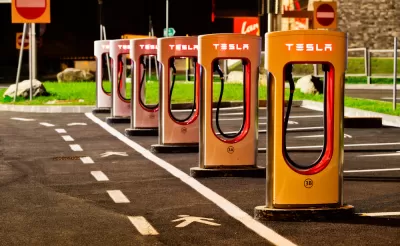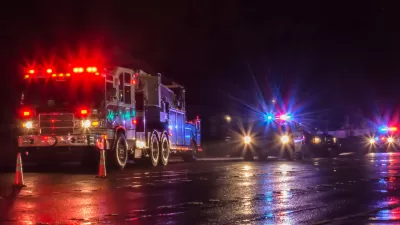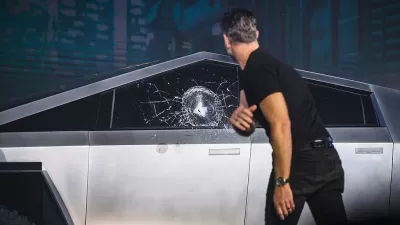When Elon Musk talks, lots of people listen. Some also respond.

In case you missed it, Elon Musk last week announced a new "Master Plan," this one subtitled "Part Deux," in an apparent nod to a 1993 comedy film starring Charlie Sheen.
The master plan, like the movie, is a sequel. Musk's first master plan was released ten years ago, describing a plan to create Tesla's line of electric vehicles. The new master plan picks up where the original left off, setting the following agenda:
Create stunning solar roofs with seamlessly integrated battery storage
Expand the electric vehicle product line to address all major segments
Develop a self-driving capability that is 10X safer than manual via massive fleet learning
Enable your car to make money for you when you aren't using it
Following that proclamation, a debate has emerged. On one side, those who believe Musk has failed to grasp crucial concepts about how transportation works. On the other side, those who eagerly anticipate the future described by the new master plan.
The former is argued by Jarrett Walker on his Human Transit blog. "Musk assumes that transit is an engineering problem, about vehicle design and technology," according to Walker. "In fact, providing cost-effective and liberating transportation in cities requires solving a geometry problem, and he’s not even seeing it."
On the other side, Alissa Walker writing for Curbed: "Tesla is actually shifting from an electric car company to a sustainable transportation company. And this could mean something revolutionary for our cities."
FULL STORY: Master Plan, Part Deux

Alabama: Trump Terminates Settlements for Black Communities Harmed By Raw Sewage
Trump deemed the landmark civil rights agreement “illegal DEI and environmental justice policy.”

Planetizen Federal Action Tracker
A weekly monitor of how Trump’s orders and actions are impacting planners and planning in America.

Why Should We Subsidize Public Transportation?
Many public transit agencies face financial stress due to rising costs, declining fare revenue, and declining subsidies. Transit advocates must provide a strong business case for increasing public transit funding.

Understanding Road Diets
An explainer from Momentum highlights the advantages of reducing vehicle lanes in favor of more bike, transit, and pedestrian infrastructure.

New California Law Regulates Warehouse Pollution
A new law tightens building and emissions regulations for large distribution warehouses to mitigate air pollution and traffic in surrounding communities.

Phoenix Announces Opening Date for Light Rail Extension
The South Central extension will connect South Phoenix to downtown and other major hubs starting on June 7.
Urban Design for Planners 1: Software Tools
This six-course series explores essential urban design concepts using open source software and equips planners with the tools they need to participate fully in the urban design process.
Planning for Universal Design
Learn the tools for implementing Universal Design in planning regulations.
Caltrans
Smith Gee Studio
Institute for Housing and Urban Development Studies (IHS)
City of Grandview
Harvard GSD Executive Education
Toledo-Lucas County Plan Commissions
Salt Lake City
NYU Wagner Graduate School of Public Service





























